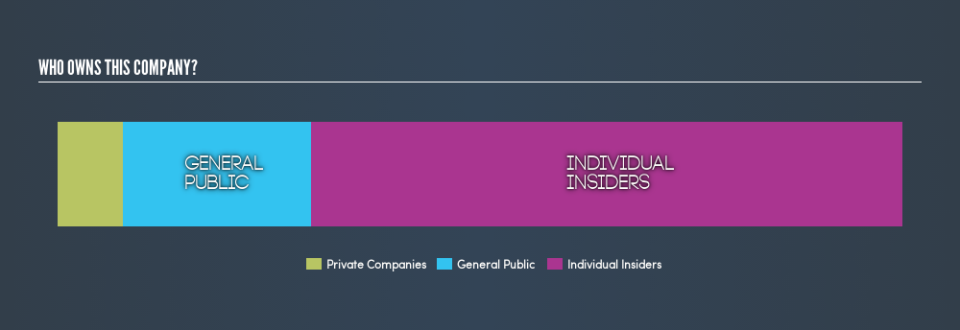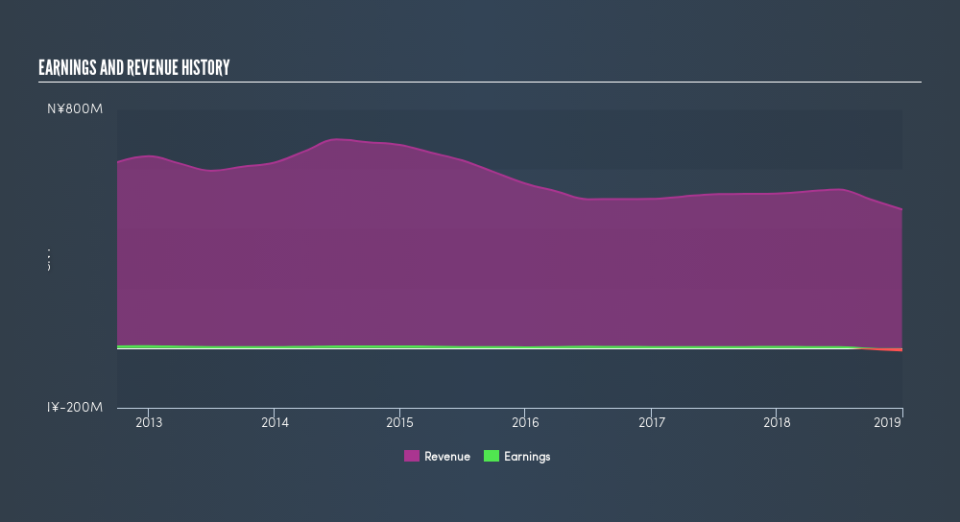Do Institutions Own Luxking Group Holdings Limited (SGX:BKK) Shares?

Want to participate in a short research study? Help shape the future of investing tools and you could win a $250 gift card!
The big shareholder groups in Luxking Group Holdings Limited (SGX:BKK) have power over the company. Large companies usually have institutions as shareholders, and we usually see insiders owning shares in smaller companies. I quite like to see at least a little bit of insider ownership. As Charlie Munger said 'Show me the incentive and I will show you the outcome.'
Luxking Group Holdings is a smaller company with a market capitalization of S$4.6m, so it may still be flying under the radar of many institutional investors. In the chart below below, we can see that institutions don't own shares in the company. We can zoom in on the different ownership groups, to learn more about BKK.
View our latest analysis for Luxking Group Holdings
What Does The Lack Of Institutional Ownership Tell Us About Luxking Group Holdings?
Small companies that are not very actively traded often lack institutional investors, but it's less common to see large companies without them.
There are multiple explanations for why institutions don't own a stock. The most common is that the company is too small relative to fund under management, so the institition does not bother to look closely at the company. It is also possible that fund managers don't own the stock because they aren't convinced it will perform well. Luxking Group Holdings's earnings and revenue track record (below) may not be compelling to institutional investors -- or they simply might not have looked at the business closely.
Hedge funds don't have many shares in Luxking Group Holdings. We're not picking up on any analyst coverage of the stock at the moment, so the company is unlikely to be widely held.
Insider Ownership Of Luxking Group Holdings
While the precise definition of an insider can be subjective, almost everyone considers board members to be insiders. Management ultimately answers to the board. However, it is not uncommon for managers to be executive board members, especially if they are a founder or the CEO.
I generally consider insider ownership to be a good thing. However, on some occasions it makes it more difficult for other shareholders to hold the board accountable for decisions.
Our most recent data indicates that insiders own the majority of Luxking Group Holdings Limited. This means they can collectively make decisions for the company. Given it has a market cap of S$4.6m, that means they have S$3.2m worth of shares. Most would be pleased to see the board is investing alongside them. You may wish todiscover (for free) if they have been buying or selling.
General Public Ownership
The general public, with a 22% stake in the company, will not easily be ignored. While this group can't necessarily call the shots, it can certainly have a real influence on how the company is run.
Private Company Ownership
It seems that Private Companies own 7.9%, of the BKK stock. Private companies may be related parties. Sometimes insiders have an interest in a public company through a holding in a private company, rather than in their own capacity as an individual. While it's hard to draw any broad stroke conclusions, it is worth noting as an area for further research.
Next Steps:
It's always worth thinking about the different groups who own shares in a company. But to understand Luxking Group Holdings better, we need to consider many other factors.
Many find it useful to take an in depth look at how a company has performed in the past. You can access this detailed graph of past earnings, revenue and cash flow .
Of course this may not be the best stock to buy. So take a peek at this free free list of interesting companies.
NB: Figures in this article are calculated using data from the last twelve months, which refer to the 12-month period ending on the last date of the month the financial statement is dated. This may not be consistent with full year annual report figures.
We aim to bring you long-term focused research analysis driven by fundamental data. Note that our analysis may not factor in the latest price-sensitive company announcements or qualitative material.
If you spot an error that warrants correction, please contact the editor at editorial-team@simplywallst.com. This article by Simply Wall St is general in nature. It does not constitute a recommendation to buy or sell any stock, and does not take account of your objectives, or your financial situation. Simply Wall St has no position in the stocks mentioned. Thank you for reading.


